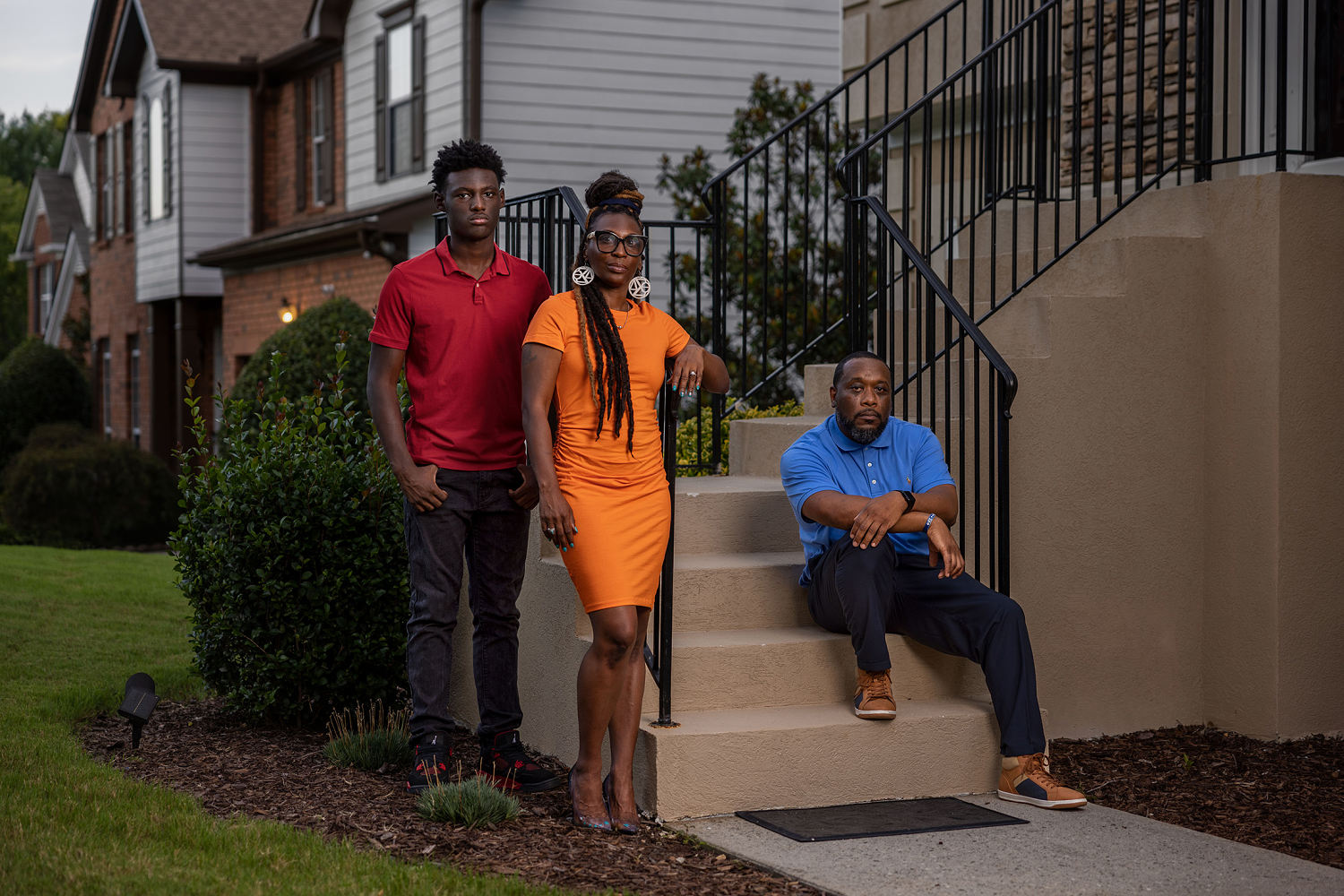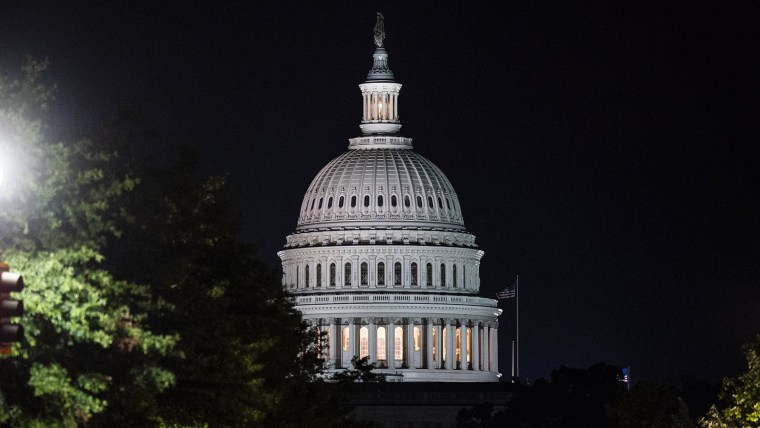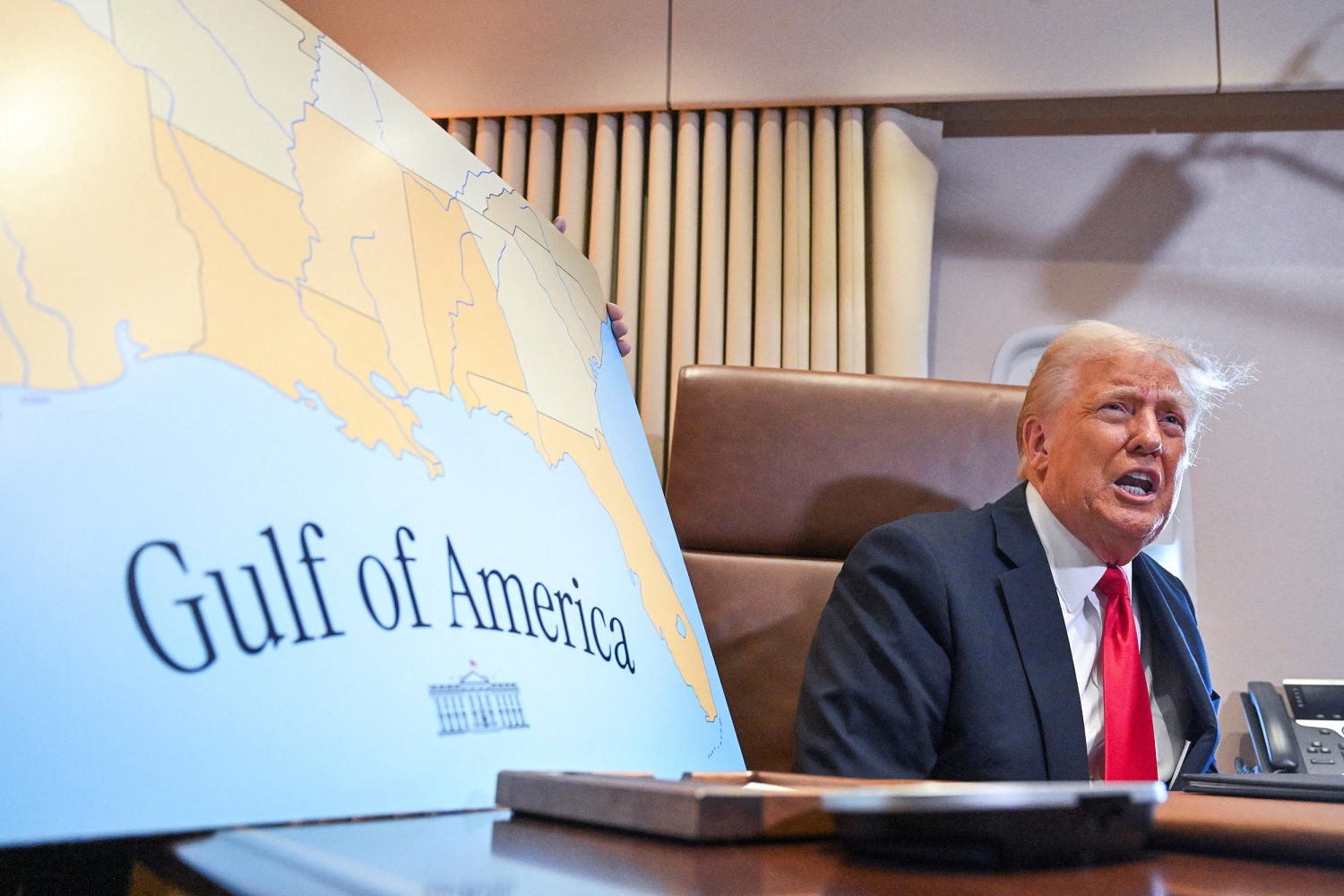Supreme Court considers lawsuit arising from ‘wrong house’ FBI raid


WASHINGTON — When Toi Cliatt heard a loud bang in his Atlanta home in the early hours of Oct. 18, 2017, his first instinct was to grab the shotgun he kept stored in a closet to defend himself from intruders.
Luckily for him, he hesitated.
“And I’m thinking about, you know, what’s going to happen if it’s law enforcement? We’re dead, you know? And they’re going to make us as the aggressor,” Cliatt said in an interview.
His instinct was correct. It turned out that the people entering the house were FBI agents with flash-bang grenades and guns drawn.
The problem was they had raided the wrong house. Cliatt, his then-girlfriend Trina Martin and her 7-year-old son Gabe Watson were entirely innocent victims. And a case stemming from the incident is still winding its way through the justice system nearly eight years later, with the Supreme Court hearing oral arguments on Tuesday.
Although all three immediately complied with the agents’ demands, the experience was traumatizing.
“I was robbed of the feeling that your home is a safe place,” Trina Martin said.
Cliatt was handcuffed and thrown on the floor with guns pointed at his head. Martin wanted to rush to her son but wasn’t allowed to move. Watson woke up abruptly to see agents with guns in his bedroom.
“It still sticks with me to this day,” the now-14-year-old said.
From the perspective of the FBI, it was a fleeting moment of error.
Once the agents realized they had gone to the wrong location, they quickly left. Later on, a supervisor returned, apologized and gave Cliatt his card.
A subsequent lawsuit the three victims filed seeking damages is now before the Supreme Court, with Tuesday’s arguments focused on whether the claims can move forward.
The case highlights the problem of law enforcement raiding the wrong house, a not infrequent occurrence.
Patrick Jaicomo, a lawyer at the libertarian Institute for Justice who is representing the plaintiffs, said he has seen more examples of it in recent years. In fact, his group alone took on two other cases of that ilk within months, one from Texas and one from Indiana.
“We have seen, anecdotally … a shocking number of wrong-house raids where the police just go to the wrong address,” he added.
There have also been other examples that made the news, including a case from Georgia in which police raided the home of an 81-year-old man.
The incidents have occurred against the backdrop of increased militarization of law enforcement, including the use of SWAT teams, and a lack of accountability when things go awry.
“We know that government raids themselves are extremely common these days, and they’re used for things that historically were done by police knocking on the front door, waiting and speaking with folks,” Jaicomo added.
In court papers, the Justice Department partly pinned the blame for the 2017 raid in Atlanta on a Garmin GPS device that FBI special agent Lawrence Guerra used to lead the team to the house. He had previously surveyed the correct house and taken photos.
On the day of the raid, the GPS indicated the agents had arrived at the correct location and Guerra “observed what he believed to be the same house he had seen during his previous site survey.” government lawyers wrote.
The FBI was actually seeking to arrest a man called Joseph Riley, who lived nearby. After leaving the wrong house, the agents raided the correct home. Riley was arrested and later convicted.
Cliatt and Martin initially sued both Guerra and the federal government, but the claims against the former were dismissed and are not at issue at the Supreme Court.
The case now before the justices relates to claims alleging assault, battery and false imprisonment under a law called the Federal Tort Claims Act (FTCA), one of the few avenues to hold federal officials accountable.
A district court judge and the Atlanta-based 11th U.S. Circuit Court of Appeals ruled for the government.
The legal question focuses on whether a particular FTCA provision, which allows claims concerning the actions of federal law enforcement officers, is trumped in this instance by another provision called “the discretionary function exception” that protects certain judgment calls from liability.
In other words, the government argues, the lawsuit cannot proceed because Guerra’s error was purely a decision taken as part of his normal duties and subject to his own discretion. It is therefore off-limits.
Government lawyers say that, with no specific FBI guidance on how to ensure agents raid the correct house, Guerra was left to use his own judgment.
They also say that allowing civil claims concerning basic law enforcement activities, like breaking down doors and using force, would threaten the ability of officers to carry out their duties.
The plaintiffs argue the government’s interpretation of the discretionary function exception eviscerates the FTCA because it would bar such a large variety of claims.
They say that the exception only applies to administrative decisions, meaning that wrong-house raids should be subject to litigation.




